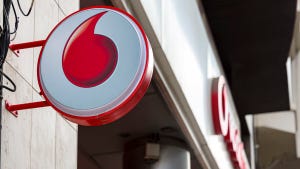What do industry analysts think of the news that Nokia and Alcatel-Lucent are in merger talks?
April 14, 2015

The potential combination of Nokia and Alcatel-Lucent is a fascinating one for many reasons: It's a risky game-changer that could either extend the shelf life of both vendors or put a stake through their collective heart. (See Nokia, Alcatel-Lucent in Merger Talks, Nokia/AlcaLu: The Key Friction Points, How Do Nokia & Alcatel-Lucent Stack Up? and Finnish Line for AlcaLu?)
It may also give us the next in a long line of terrible post-merger multi-vendor name combinations. (Anyone for NokAlu? Will a totally new name be needed? Might they combine under the Nuage name even?)
So what do industry analysts think of the news, which followed shortly after a story from Bloomberg late on Monday that suggested Nokia Corp. (NYSE: NOK) was only interested in Alcatel-Lucent (NYSE: ALU)'s wireless infrastructure business? Here are some early thoughts from our learned friends.
Gabriel Brown, Senior Analyst, Heavy Reading
"The rumor on Monday was for a carve out of Alcatel-Lucent's wireless business. As I argued at that time (on Twitter), that would be difficult from a practical perspective because wireless is deeply embedded in the company. I also don't think that scenario would be particularly useful for either company.
"A full merger is a different proposition -- but wow. There are lots of angles. Over time, it should help drive some margin growth and stave off Huawei a while longer. In theory, greater scale, and taking out a competitor, should help margins, but both companies know that generating benefits from these big mergers is a long-term play. In the meantime, there would be a lot of disruption, should the deal go ahead.
"It'll be interesting to see customer reaction. They need financially successful suppliers that can afford the vast R&D budgets you need to be effective in networking. And from a wireless perspective, if you had to merge two of the four major vendors, this would be the combination with least customer overlap. On the other hand, this will reduce competition for their business and create uncertainty about product roadmaps."
Caroline Chappell, Principal Analyst, Cloud and NFV, Heavy Reading
"I agree that carving out Alcatel-Lucent's wireless business doesn't make a lot of sense. Alcatel-Lucent has been making strenuous efforts in its IP Platforms business, where its newly strategic Motive portfolio and CloudBand sit, to make its software products relevant to both mobile and fixed operators, a position that would be undermined if it lost its wireless business. At the same time, Nokia is trying to make its competitive products, such as CEM On Demand and NetAct, relevant to the fixed network. A merger could help both strategies. (See NSN Unveils CEM Service Suite and NSN Enhances Its Virtualized OSS.)
"However, I see considerable product overlap in IP Platforms, which could contribute to product roadmap uncertainty and which competitors could capitalize on. On the other hand, both companies have market-leading software products with which Ericsson and Huawei are struggling to catch up -- CloudBand and Motive Device Management from Alcatel-Lucent and CEM On Demand from Nokia -- so customers are likely to stick with them. And there would be an advantage in boosting the scale of IP Platforms to approach that of their larger rivals.
"Industry consolidation is inevitable as virtualization enables a new cohort of software-based competitors to flourish and I agree that this merger makes most sense out of the combination of the four main players."
Bengt Nordstrom, founder and CEO, Northstream
"Nokia's potential acquisition of Alcatel-Lucent would change the dynamics of the infrastructure space. Simply buying a part of AlcaLu wouldn't impact the market nearly as dramatically as acquiring the whole company.
"At a stroke, the infrastructure market would expand from two big players -- Ericsson and Huawei -- to three. A potential acquisition would give Nokia a company whose products very much complement its own current portfolio. Ericsson in particular would face a strong competitor, both geographically and on the product side.
"The big challenge that will define whether the expanded Nokia could seriously challenge Ericsson is how well it could integrate Alcatel-Lucent into its operations. Historically, integrating companies of relatively equal size and revenue has been very challenging. The various different cultures at each company -- Finnish, German, American, French, Indian -- is also an unknown factor that might complicate the process.
"What might make this potential acquisition successful is Nokia CEO Rajeev Suri's strong track record for downsizing and streamlining."
Steve Bell, Senior Analyst, Heavy Reading
"Although the initial Nokia/Siemens merger was shaky, Rajeev Suri has acted with strategic decisiveness since he became CEO. His consolidation of the company and the subsequent acquisition of Motorola's networks business have been done with both vision and a keen eye on rationalization.
"Insider comments from people who were part of the Motorola acquisition said he ensured the integration was swift and he acted with surgical precision on cost. If anyone can bind these two companies together, it is probably Suri. However, the political aspects of acquiring what is still a French company and the likely human impact in terms of restructuring will be a greater challenge than any portfolio rationalization and customer retention issues."
Jim Hodges, Senior Analyst, Heavy Reading
"I agree with my colleagues there is considerable overlap and it could be a difficult integration.
"Given both have had success on the turnaround front I can only assume this is purely business and scale driven. If you look at the NSN and Alcatel-Lucent mergers they certainly didn't meet original expectations, but they did survive, while others like Nortel, which was rumored to be in the merger mix with Alcatel, didn't make it, so perhaps that's the final metric to assess overall merger success.
"I wonder if both companies have run detailed long-term market share forecasts by region and both concluded, that despite short-term success, they simply can't grow share or expand business in the next decade without a major change."
We will add more analyst commentary as it comes in.
— Ray Le Maistre, 

 , Editor-in-Chief, Light Reading
, Editor-in-Chief, Light Reading
You May Also Like









